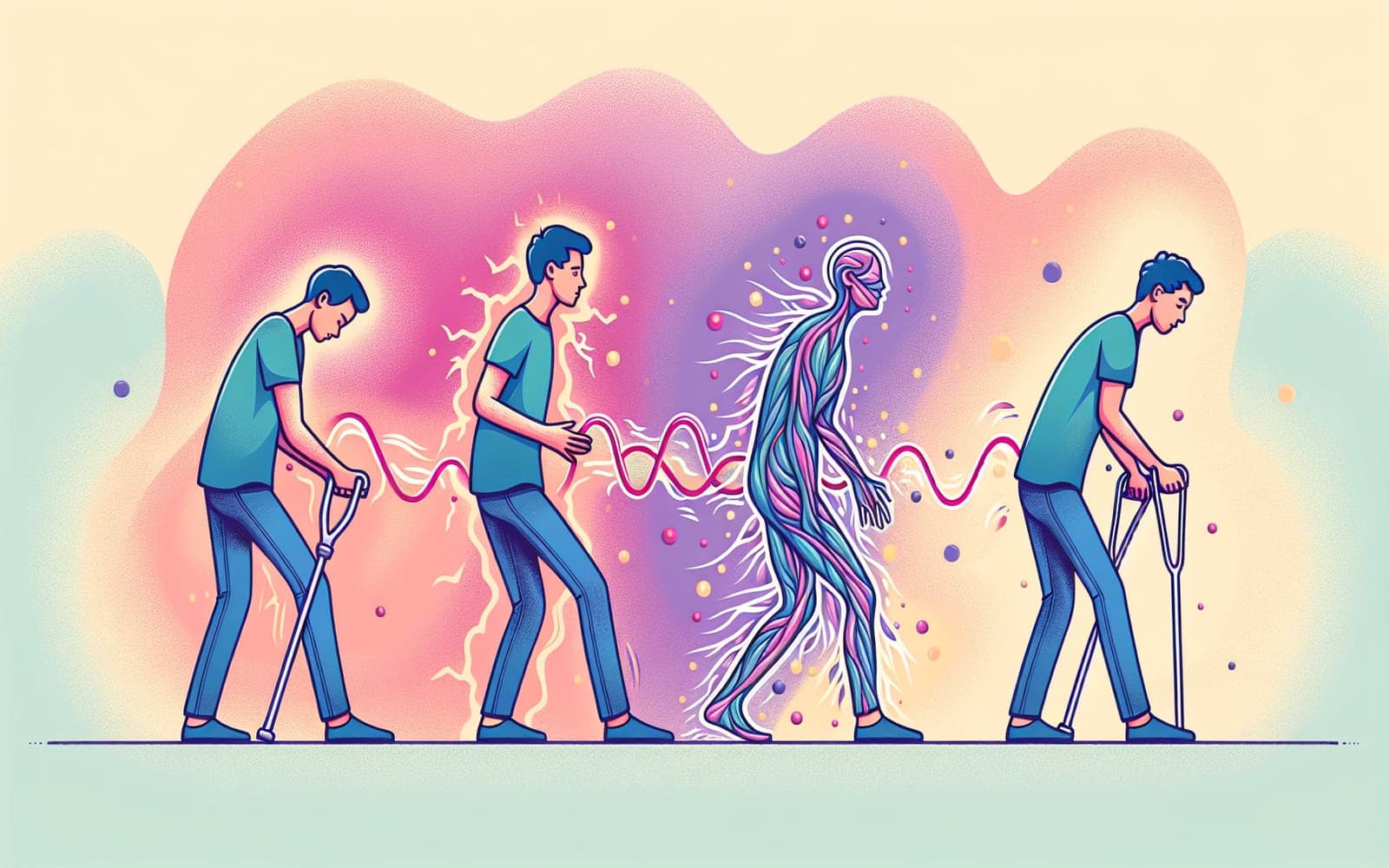From Tingling to Paralysis: The Warning Signs of Guillain-Barré Syndrome
Published: Sep 26, 2024

Medically reviewed by Becky Powers | MD, The University of Texas Medical School - Houston, Texas on September 26th, 2024.
Guillain-Barré syndrome (GBS) often starts subtly but can progress rapidly. Recognizing its early signs can be crucial for getting timely treatment. So what should you watch out for?
Contents
The Classic Progression: From Toes to Nose
GBS typically follows a pattern, starting in your toes and fingers and moving upwards. It often begins with tingling or pins-and-needles sensations. This is followed by weakness that can progress from mild difficulty walking to severe paralysis. The weakness is usually symmetric, affecting both sides of your body equally. In severe cases, it can affect your breathing muscles, requiring ventilator support.
Beyond Weakness: Other Key Symptoms
While weakness is the hallmark of GBS, it's not the only symptom. Many people experience pain, which can be severe. You might also notice changes in your reflexes - they often become sluggish or disappear altogether. Some people have difficulty with eye movements or facial muscles, leading to double vision or trouble speaking or swallowing.

The Hidden Dangers: Autonomic Symptoms
GBS can affect your autonomic nervous system, which controls involuntary functions. This can lead to problems with blood pressure, heart rate, and digestion. You might experience dizziness, abnormal heart rhythms, or issues with bladder and bowel function. These symptoms can be dangerous if not monitored closely.
Frequently Asked Questions
Symptoms typically peak within 2-4 weeks of onset.
GBS typically progresses steadily, not in a relapsing-remitting pattern.
Many people with GBS experience significant pain.
GBS primarily affects peripheral nerves, not the brain.
Key Takeaways
GBS symptoms can vary widely, but progressive weakness is the most common and significant sign.
Experiencing unexplained weakness or tingling? Don't wait - consult with Doctronic to evaluate your symptoms.Related Articles
References
Willison HJ, Jacobs BC, van Doorn PA. Guillain-Barré syndrome. Lancet 2016; 388:717.
Fokke C, van den Berg B, Drenthen J, et al. Diagnosis of Guillain-Barré syndrome and validation of Brighton criteria. Brain 2014; 137:33.
This article has been reviewed for accuracy by one of the licensed medical doctors working for Doctronic. Always discuss health information with your healthcare provider.

